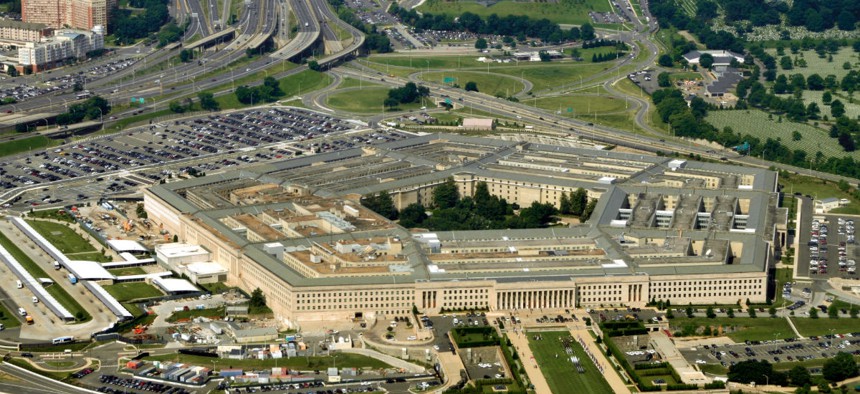Military Pay Raise, TRICARE Reform Bill Advances in Senate
Panel approves NDAA which also calls on Defense to reduce the Senior Executive Service by 25 percent by 2019.
Major legislation that provides troops with a 1.6 percent pay raise next year and overhauls the military’s health care system now heads to the Senate floor.
The full Senate Armed Services Committee approved the fiscal 2017 National Defense Authorization Act on Thursday, ahead of schedule. The $602 billion bill includes a pay increase for troops that is a half percent less than the 2.1 percent boost the House Armed Services panel approved in its version of the NDAA.
The different figures likely means that the two chambers will have to agree on a final number during conference committee. The Senate panel’s 1.6 percent figure is the same amount that President Obama has recommended for the military and federal civilian employees in his fiscal 2017 budget.
The bill reported out by the Senate panel on Thursday also included a reauthorization of bonuses and special pay aimed at recruiting and retaining troops, as well as several provisions affecting the military’s massive health care system. In addition, the legislation requires Defense to reduce the size of its workforce, calling for a 25 percent decrease in the number of general and flag officers, as well as a 25 percent reduction in the number of civilian career senior executives at the department by January 2019.
DoD also would have to cut its spending on contractors by 25 percent by January 2019 under the bill.
“The Office of the Secretary of Defense and the military departments have statutory caps on the number of military and civilian personnel,” said a committee press release on the NDAA. “However, for many years, these offices have exceeded these caps through two mechanisms – working under a ‘national emergency’ exemption and use of contractors.” The fiscal 2017 NDAA institutes a cap that “allows only a 15 percent increase over the cap in times of national emergency,” the statement said.
The committee will not release the actual text of the bill or the committee report until next week.
With respect to the military health care system, the Senate NDAA would:
- Create new TRICARE health plans -- Prime, Choice, and Supplemental.
- Authorize a pilot program to provide commercial health care coverage to National Guard and Reserve members and their dependents who live in remote areas, as an alternative to TRICARE coverage.
- Authorize “very modest” increases in annual enrollment fees for military retirees.
- Allow appointment “no-show fees” in military treatment facilities.
- Make military health care leaders accountable for management of the health care system.
- Increase pharmacy co-pays in phases over nine years.
The NDAA “modernizes the military health system to provide beneficiaries with higher quality care, better access to care, and a better experience of care,” said Senate Armed Services Committee Chairman John McCain, R-Ariz. “The current TRICARE program’s myriad outmoded regulations and policies focus on ‘the system’ rather than doing the right thing for beneficiaries. TRICARE’s obsolete medical support contract strategy results in high acquisition costs, routine bid protests, implementation delays, high management costs, and costly contract extensions.”
The House Armed Services Committee approved its NDAA on April 28, and the full House could take it up as early as next week.
NEXT STORY: The Other Open Season This Year








